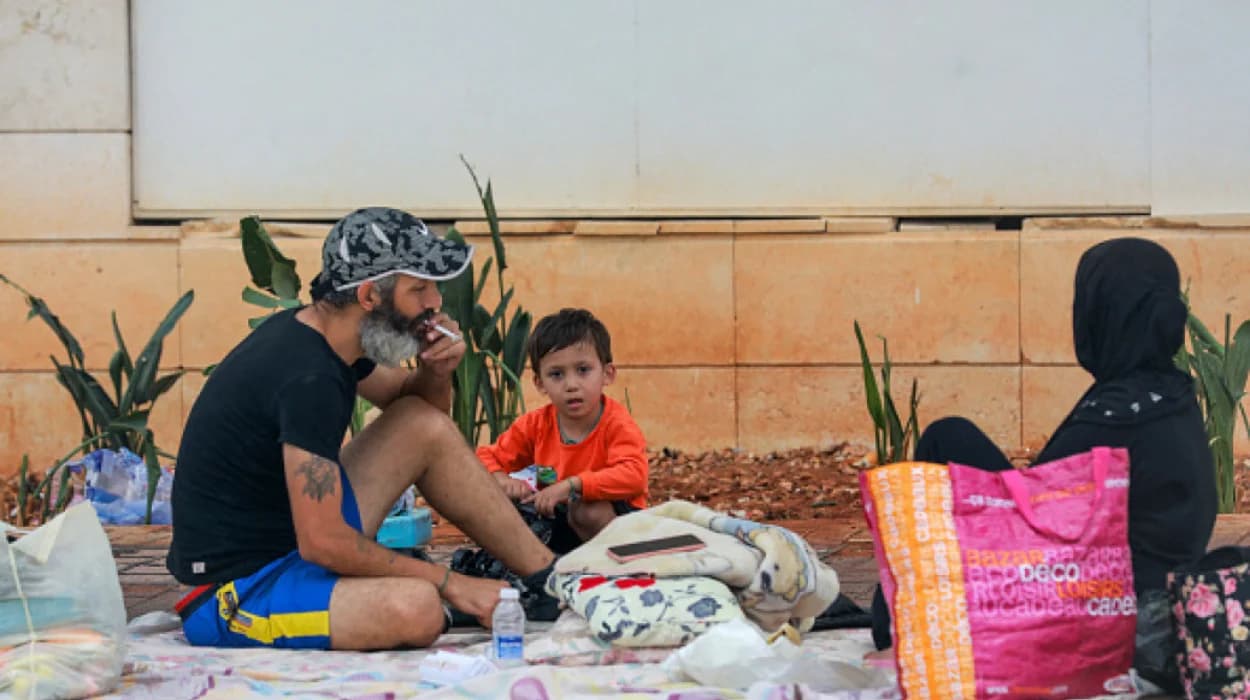Hezbollah has reportedly stockpiled significant military aid
in northern Lebanon amidst escalating fears of a renewed conflict with Israel.
Tensions in the region are rising, with concerns over potential war sparked by
mounting hostilities and strategic preparations from both sides.
What is the current situation involving Hezbollah’s military stockpiles in northern Lebanon?
As reported by Ali Harb of Al Jazeera on 1 August 2025,
Hezbollah, the Lebanese Shiite militant group and political party, has been
observed stocking large caches of military aid and weaponry in northern
Lebanon. This development aligns with a broader increase in regional tensions,
with many experts warning of the growing possibility of renewed hostilities
between Hezbollah and Israel.
Why are fears of renewed war between Hezbollah and Israel intensifying?
According to Ali Harb's detailed coverage for Al Jazeera,
the fears stem from recent escalations in cross-border tensions, which include
frequent exchanges of fire and drone infiltration attempts. The northern
Lebanese region, traditionally a Hezbollah stronghold, has become the focal
point for preparations that suggest a potential military confrontation could be
imminent.
The Israeli government, while not commenting explicitly on
these stockpiling reports, has reinforced its northern borders and has
repeatedly warned Hezbollah against any attempts to initiate conflict. Military
analysts note that both parties appear to be engaged in a shadow war, with
intelligence and field operations escalating on both sides.
What is the significance of Hezbollah's aid stockpiling in strategic terms?
Military strategists see Hezbollah's accumulation of arms in
northern Lebanon as a signal of preparedness and deterrence. This build-up
includes advanced weaponry and logistical supplies that would support an
extended conflict if triggered.
As noted by Shola Lawal in Al Jazeera’s analysis,
Hezbollah’s strategy is not only about preparing for an offensive but also
aligning its resources to counteract Israeli military operations targeting its
strongholds. This stockpiling effectively solidifies Hezbollah’s defensive
depth in the region, potentially complicating Israel’s military calculations.
How do regional and international actors view these developments?
Gabrielle Lazor, writing for Al Jazeera, highlights the
broader context of these tensions, with regional powers closely monitoring the
situation. Iran, a key backer of Hezbollah, is believed to have facilitated
some of the military aid, while Western nations and Israel view this as a destabilising
factor.
The United Nations and international peacekeeping forces in
Lebanon have expressed concern over the militarisation and urge restraint to
avoid further outbreaks of violence. However, diplomatic efforts appear limited
at this stage, with underlying geopolitical rivalries influencing the lack of
substantive ceasefire negotiations.
What statements have Hezbollah or Israeli officials made regarding these tensions?
As per Al Jazeera’s reportage, Hezbollah representatives have not publicly confirmed the stockpiling but framed their activities as defensive measures against Israeli aggression. A spokesperson for Hezbollah stated that
"Our preparations are to safeguard Lebanon’s sovereignty and people."
On the other hand, Israeli officials have issued stern
warnings indicating that any aggression from Hezbollah will be met with robust
military response, reaffirming Israel’s resolve to maintain security along its
northern border.
What have independent analysts and journalists said about the risk of conflict escalation?
Alastair McCready from Al Jazeera emphasised that
“the potential for a renewed war is higher than in recent years, with both sides feeling cornered and primed for retaliation”.
Analysts stress that even a
minor incident could rapidly spiral into wider conflict, given the current
militarisation and mutual mistrust.
Moreover, the complex web of alliances and historical
grievances in the region makes a diplomatic resolution challenging. With
Hezbollah bolstered by foreign aid and Israel’s military vigilant, the
situation remains volatile.
What is the international community’s response to these developments?
The United Nations Interim Force in Lebanon (UNIFIL) has
urged all parties to exercise maximum restraint, while calls from various
international diplomats have encouraged dialogue. However, there is wariness
about imposing sanctions or direct interventions that might exacerbate tensions.
The U.S. and European governments continue to monitor the
situation, linking it with broader Middle East peace efforts. Some advocacy
groups express concern about civilian safety in the event of renewed conflict,
urging humanitarian preparedness.
What could be the humanitarian impact if hostilities resume?
As highlighted by Al Jazeera’s field reports, northern
Lebanon is home to millions of civilians who have already suffered the
consequences of past conflicts. A new war could lead to extensive displacement,
infrastructure damage, and loss of life.
International aid agencies warn of urgent needs to prepare
medical and logistical support to handle potential crises. Past conflicts have
shown that the civilian population often bears the brunt of the violence,
heightening concerns about escalation.
